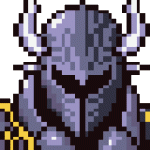I have not heard about even one indie studio where the founders were not programmers/artists. Directing and coordinating simply is not what is required.
Yeah, the issue is one of credibility. If you have at least a couple hundred thousand or more to pay some salary that is one thing. Raising that kind of money is not easy, unless you have a couple top-selling games you played a leading role in already (and even with those credentials, fundraising is by no means easy).
Getting people to join without pay is difficult, even if you give up substantial equity. It requires you to sell a vision. If you have never done a game before, you lack credibility. If you have nothing to show, you lack credibility. Even a visually appealing, polished, GDD and presentation that you took 3 years to write, sadly, probably isn't going to be enough to give you credibility. At a minimum, you need either some nice art, or a prototype, to have a chance at successful recruiting people to join your team with no salary.
That's the approach I'm taking-- program a playable prototype, with the initial art coming from cheap royalty free images as well as royalty free sound effects which I hope to complete end of this year. At that point, I'll be able to shake hands with artists, hand them my iPad and let them play the game as part of my recruitment pitch to see if they are willing to join the project.
The #1 credibility question that prospective team members and investors will ask you for is "can you successfully produce something real"?
Which answer will have a higher success rate making the pitch?
"Here is a working prototype, it is a playable demo version though it is missing many features and art. Play this game and let me know what you think"
"Look at this concept art and UI mockups for all the major screen types that I've put together"
"I haven't programmed anything, I have no artistic ability, I never have been involved in video game production before.. but check out my game idea and design document"













